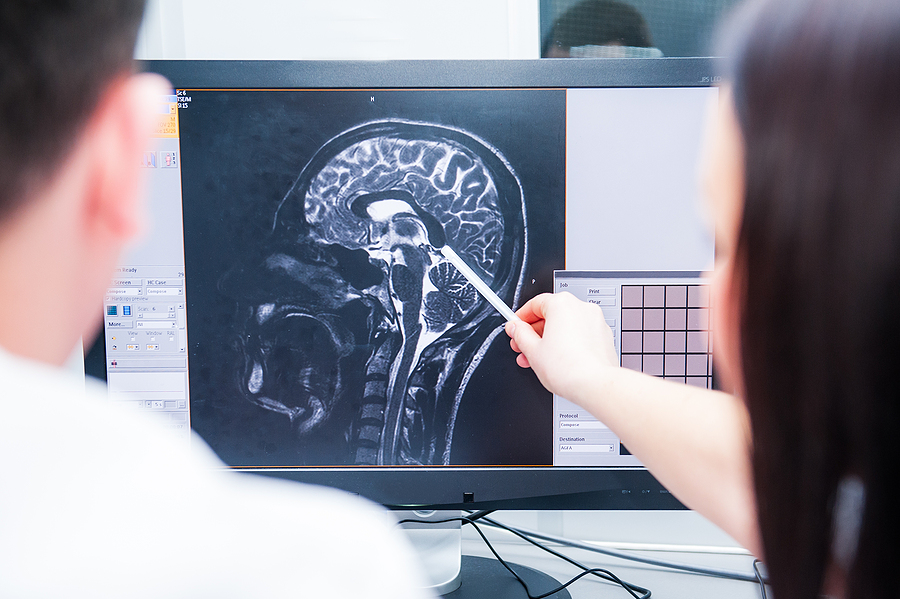Summary
- Types of brain injuries include traumatic brain injury, concussion, acquired brain injury, and anoxic brain injury.
- Victims must get legal help if they suffered an injury due to another’s negligence.
- Attorneys can investigate the accident, identify liable parties, and pursue compensation.

A brain injury is a term that encompasses various conditions affecting the brain’s normal functioning. Some injuries are relatively minor, while others can lead to a lifetime of debilitation. Understanding the distinct types of brain injuries is crucial, considering their profound impact on victims’ lives.
Attorneys with The Eberst Law Firm have years of experience representing clients who suffered brain injuries in accidents caused by someone else’s negligence. If you want to learn how we can help you obtain the compensation you deserve for your injury, please call 772-225-5566 or contact us online.
Common Types of Brain Injuries
Four of the main types of brain injuries include traumatic brain injury, concussion, acquired brain injury, and anoxic brain injury. The following is a brief look at each:
Traumatic Brain Injury (TBI)
Traumatic brain injuries (TBIs) result from external forces causing damage to the brain. They can occur in various scenarios, such as car accidents, falls, or sports-related incidents. The severity of TBIs varies, ranging from mild to moderate and severe. About 1.5 million Americans suffer TBIs yearly.
Immediate effects may include confusion, loss of consciousness, and memory loss, while long-term consequences might involve cognitive impairments, personality changes, and challenges in daily functioning.
Concussion
A concussion is a specific form of TBI characterized by a temporary disturbance in brain function. It commonly results from a blow or jolt to the head, causing the brain to move within the skull.
Concussion symptoms may include headache, dizziness, and sensitivity to light, with varying recovery durations. While most individuals recover fully, some may experience prolonged symptoms requiring medical attention.
Acquired Brain Injury (ABI)
ABIs don’t occur due to external forces. They develop because of internal factors affecting the brain’s function. Strokes, infections, and tumors are common causes of ABIs. The effects depend on the specific area of the brain affected, leading to a wide range of cognitive impairments.
Anoxic Brain Injury
Anoxic brain injuries occur when the brain is deprived of oxygen, leading to cell damage. Causes can include drowning accidents, suffocation, or medical conditions affecting oxygen delivery.
The consequences are often severe, impacting cognitive and motor functions. Rehabilitation for anoxic brain injuries is challenging due to the delicate nature of brain cells, making recovery a prolonged and uncertain process.
Legal Considerations for Brain Injury Victims
Negligence is often the cause of many types of brain injuries. If someone caused an accident that injured you or a loved one, you need a personal injury lawyer as soon as possible. They’ll immediately work to determine the at-fault party’s liability and pursue compensation.
Establishing Liability
Determining liability is a critical aspect of seeking justice for victims of the types of brain injuries mentioned above. Accidents involving external forces, such as car crashes or falls, require a thorough examination to identify responsible parties. Establishing negligence is crucial in holding those parties accountable for your harm.
Seeking Compensation for Different Types of Brain Injuries
Brain injuries often result in significant medical expenses and rehabilitation costs. Victims may face challenges returning to work, leading to lost wages and potential future earning capacity. Pain and suffering damages encompass the emotional toll of the injury.
Seeking compensation isn’t just a financial matter; it’s a way to help victims obtain justice for their physical, emotional, and financial burdens from the different types of car accidents.
How a Personal Injury Attorney Can Help
Navigating the legal complexities after a brain injury demands the expertise of a personal injury attorney as soon as possible. These legal professionals provide crucial guidance and representation to ensure victims fully comprehend their rights and have a strong advocate fighting for their interests.
Attorneys play a pivotal role in investigating the accident, gathering evidence, and establishing a clear link between the injuries sustained and the negligence of responsible parties.
The Compensation Process
When people suffer brain injuries, they deserve full compensation. Here are a few ways a skilled personal injury attorney can help them get it:
Filing a Personal Injury Claim
Initiating the legal process involves formally filing a personal injury claim against the responsible parties. This initial step requires presenting a comprehensive case supported by all necessary documentation.
Personal injury attorneys meticulously compile evidence, including medical records, accident reports, witness statements, and expert opinions. This documentation is the foundation for the victim’s claim, outlining the extent of injuries, the impact on their life, and the negligence of the parties involved.
Negotiation with Insurance Companies
Negotiating with insurance companies is a delicate and nuanced process requiring a personal injury attorney’s expertise. Your lawyer will respond to offers and make counteroffers to secure fair compensation that addresses your losses and future needs.
Attorneys use their knowledge of personal injury law and negotiation skills to ensure that the final settlement reflects the true impact of the brain injury on your life.
Litigation if Necessary
Litigation is the next step when negotiations stall, or insurance offers fall short of meeting the victim’s needs. Going to court is the last resort to ensure that brain injury victims receive the fair compensation they deserve.
Your personal injury lawyer will be prepared to present a compelling case in the courtroom. This preparation involves a thorough examination of evidence, questioning witnesses, and demonstrating the clear connection between the accident, the resulting brain injuries, and the negligence of responsible parties.
The Eberst Law Firm is Here to Help
Please don’t hesitate to get in touch with The Eberst Law Firm if you or a loved one suffered a brain injury due to another’s carelessness. You can use our online form or call 772-225-5566 for a free case review.
FAQ
What are the 4 types of traumatic brain injuries?
The four types of traumatic brain injuries are concussion, contusion, penetration injuries, and diffuse axonal injuries.
What is a mild traumatic brain injury?
A mild traumatic brain injury (mTBI) typically involves a brief loss of consciousness or altered mental state. Symptoms may be subtle, but an mTBI can still have short-term cognitive effects.
Can the brain heal from traumatic brain injury?
The brain has some capacity for healing, especially in mild cases. However, the extent of recovery depends on factors such as the severity of the injury, prompt medical intervention, and individual variations.
Can a brain injury get worse over time?
In some cases, complications or secondary issues can occur, potentially leading to a worsening of symptoms over time. Monitoring and managing these complications is crucial for a victim’s long-term well-being.
